
The FDA accepts the supplemental biologics license application for enfortumab vedotin-ejfv and pembrolizumab in patients with urothelial cancer following supporting data from the phase 3 KEYNOTE-A39 trial.

Your AI-Trained Oncology Knowledge Connection!


The FDA accepts the supplemental biologics license application for enfortumab vedotin-ejfv and pembrolizumab in patients with urothelial cancer following supporting data from the phase 3 KEYNOTE-A39 trial.
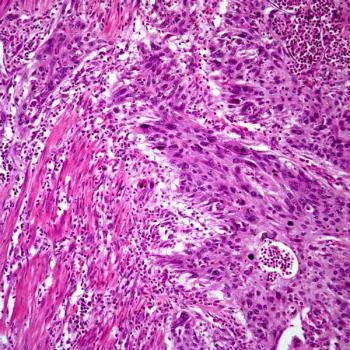
More than half of the patients with non–muscle-invasive bladder cancer in the BOND-003 trial achieve a complete response at 6 months following treatment with cretostimogene grenadenorepvec.
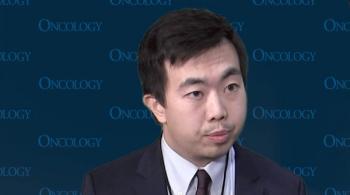
Artificial intelligence models may be “seamlessly incorporated” into clinical workflow in the management of prostate cancer, says Eric Li, MD.

Surgery following treatment with checkpoint inhibitors yields no surgical complications in a cohort of patients with advanced renal cell carcinoma, according to Jason Scovell, MD, PhD.

Investigators note a trend towards improved overall survival with cadonilimab plus chemotherapy with or without bevacizumab among those with cervical cancer in the phase 3 AK104-303 trial.

Realigning value-based models to increase reimbursement for hypofractionated radiotherapy in prostate cancer may minimize barriers to access among underserved communities.

Robust genetic testing guidelines in the prostate cancer space must be supported by strong clinical research before they can be properly implemented, says William J. Catalona, MD.

Investigators are assessing BI 764532 in extensive-stage small cell lung cancer and other neuroendocrine carcinoma as part of the phase 2 DAREON-5 study.

Treatment with tisotumab vedotin may be a standard of care in second- or third-line recurrent or metastatic cervical cancer, says Brian Slomovitz, MD, MS, FACOG.

Six BCMA-directed, CD19-directed autologous CAR T-cell therapies are under investigation for the potential risk of T-cell malignancies.

The difference in adverse effect profiles between sorafenib and nirogacestat may make one treatment more appealing than the other for certain patients with desmoid tumors, says Brian Van Tine, MD, PhD.

Data from the phase 1b/3 IMscin001 trial support the Committee for Medicinal Products for Human Use’s positive opinion on subcutaneous atezolizumab in lung cancer and other disease types.
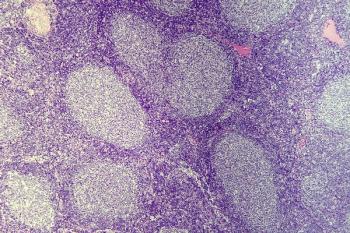
Data from the phase 1/2 EPCORE NHL-1 trial support the FDA breakthrough therapy designation for epcoritamab-bysp in patients with previously treated relapsed/refractory follicular lymphoma.

Second-line treatment with belantamab mafodotin plus bortezomib/dexamethasone in patients with relapsed/refractory multiple myeloma is supported by findings from the phase 3 DREAMM-7 study.

Patients with desmoid tumors can now receive nirogacestat following the FDA’s approval of the agent.

Safety data from the phase 3 PREVAPIX-ALL trial support the use of apixaban among pediatric patients with acute lymphoblastic leukemia who are at high risk of thrombosis.
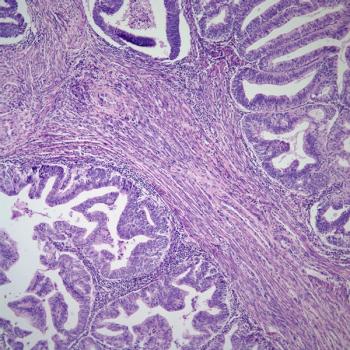
Total costs for endometrial cancer therapy in the first line appear to be higher for those diagnosed with metastatic disease compared with those who do not have metastatic disease.
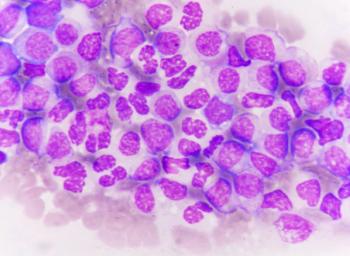
Data from the phase 2 FELIX study support the biologics license application for obecabtagene autoleucel as a treatment for patients with relapsed/refractory acute lymphoblastic leukemia.

The use of artificial intelligence may help determine how breast cancer tumors develop resistance to certain therapies, notes Rakhshanda Rahman, MD, FRCS, FACS.

Personalized therapy tailored for mutation status is something to expect in the coming years for colorectal cancer treatment, notes Tanios S. Bekaii-Saab, MD.

Significant progression-free survival was seen in those with TP53 wild-type advanced/recurrent endometrial cancer who were treated with maintenance selinexor.
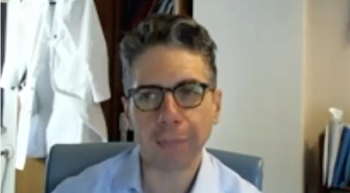
Richard Bakst, MD, speaks to the potential use of artificial intelligence in the radiation oncology space, and how he hopes to see it evolve.

The FDA finalizes the guidelines of its real-time oncology review to state that submissions must include clinical trial end points that can be “easily interpreted.”

An artificial intelligence-based algorithm may help with tailoring treatment for patients with retroperitoneal sarcoma by clarifying the risks of their diseases, says Amani Arthur, MRCPCH.

The Epione robot eliminates the need for multiple check scans during surgery by allowing physicians to target a tumor with a single button press, according to Govindarajan Narayanan, MD.

The safety profile of durvalumab plus chemoradiation among patients with unresectable non–small cell lung cancer in the phase 3 PACIFIC-2 trial appears to be consistent with prior reports.

Experts in the field of multiple myeloma gathered to discuss treatment options, including bispecific antibodies, CAR T-cell therapy, and current and future FDA approvals for treatments.

The Epione robot may help less experienced surgeons carry out complex cases with a high level of accuracy, says Govindarajan Narayanan, MD.

Experts in the field of multiple myeloma gathered to discusses treatment options including bispecific antibodies CAR T-cell therapy, and the importance of collaborative decision-making across clinics.

A panel of experts discusses the management of adverse effects including dysgeusia and infections among patients who received bispecific therapies for relapsed/refractory multiple myeloma in the context of a clinical case.